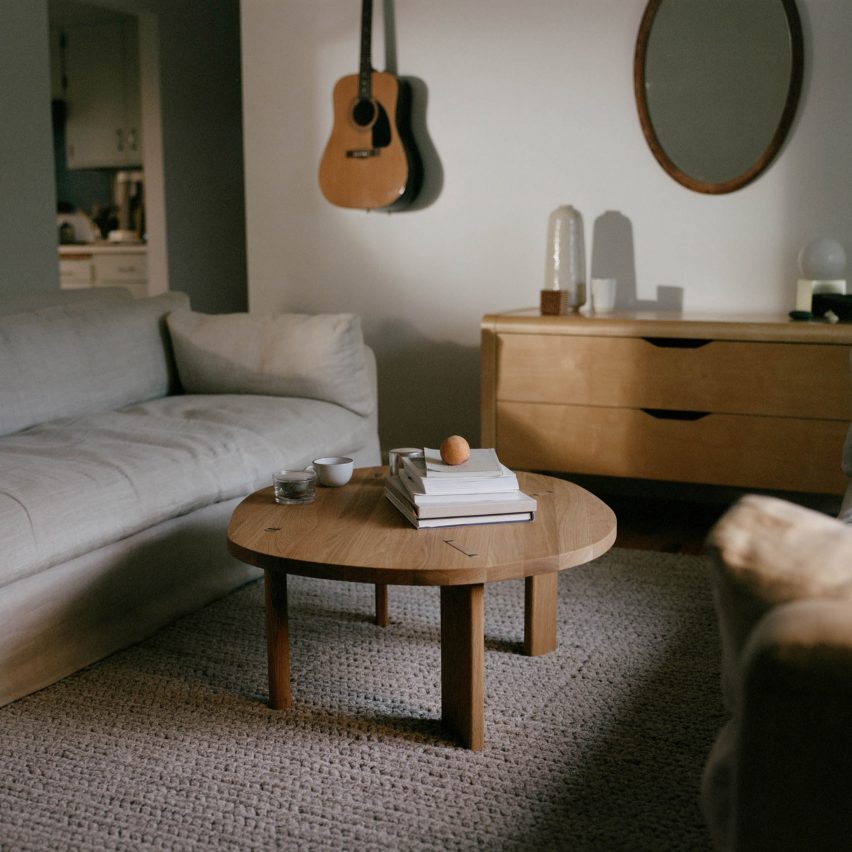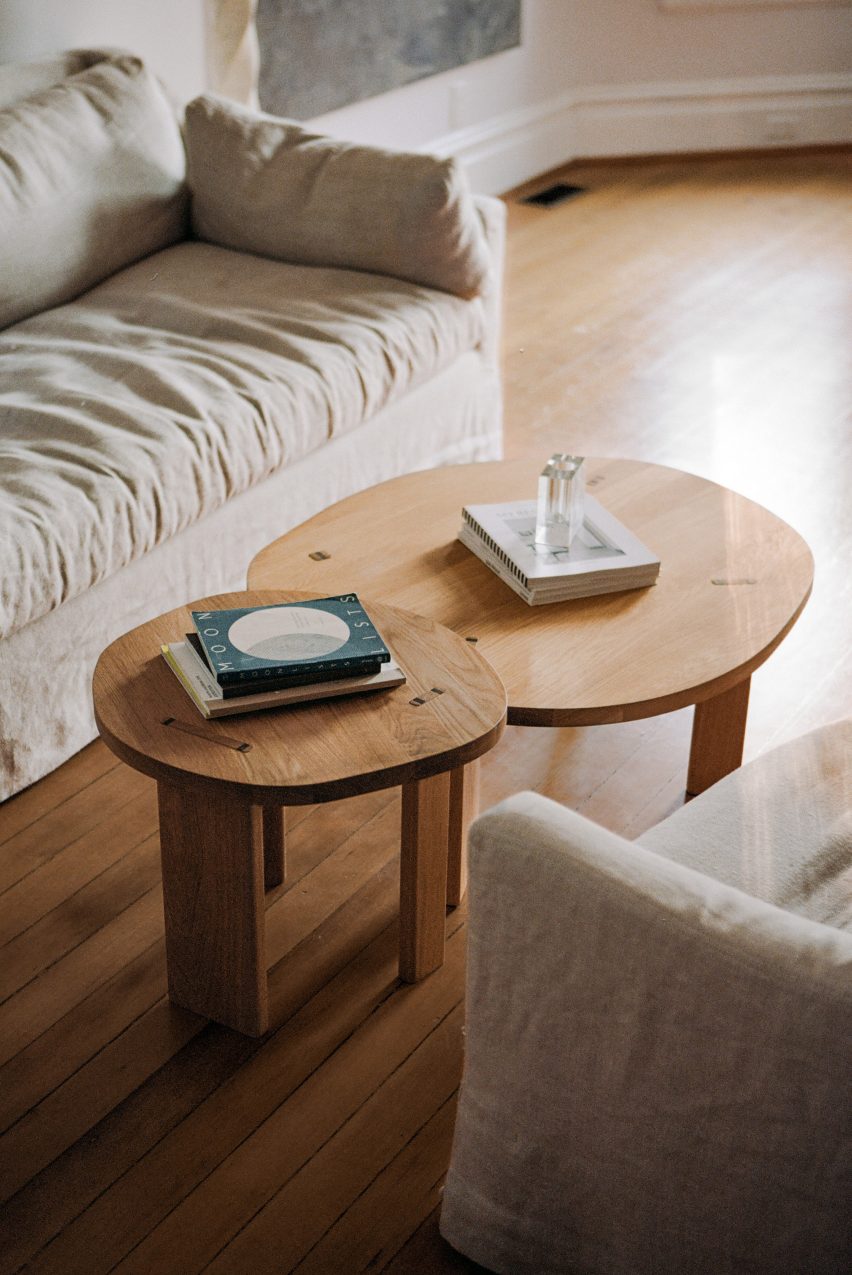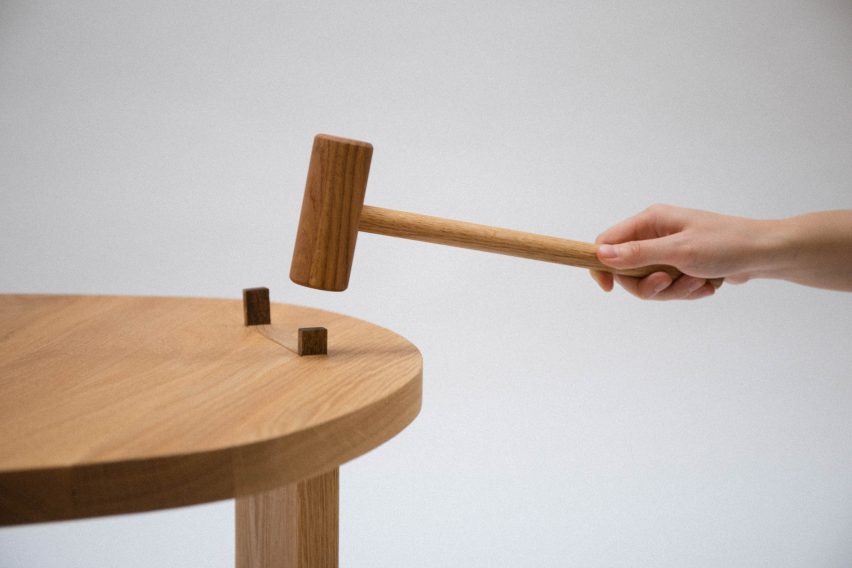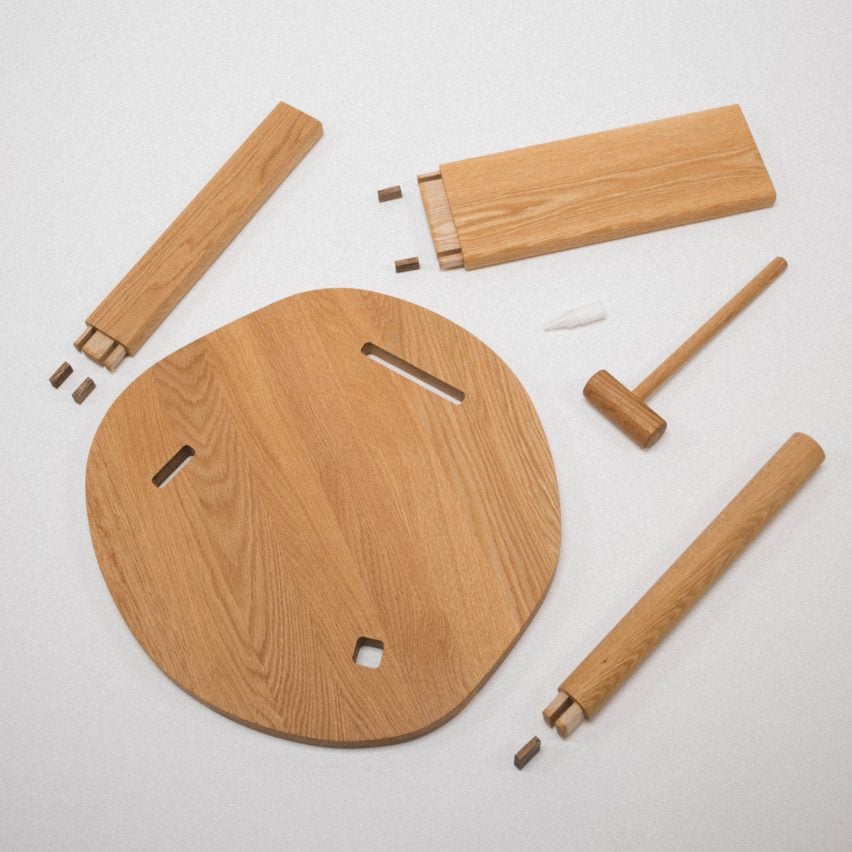
Akron Street's Tenon Table utilises age-old woodworking technique
Dezeen promotion: Brooklyn furniture brand Akron Street has launched a wooden coffee table held together by joints that require no metal hardware to assemble.
Using a centuries-old woodworking technique, the solid white oak parts that comprise the Tenon Table easily slot together and hold firmly in place.

Designed by Akron Street founders Hans Yunez and Lulu Li as part of a collection of hardwood furniture, the table's structure is based around the strength of mortise and tenon joints.
To assemble, the tenons – the protruding ends of the legs – are inserted into the corresponding mortises – holes – in the table top.

With force from a small oak mallet, small wedges are driven into the exposed tenons, causing the wood to expand and lock the connecting elements together.
Precise manufacturing ensures that the wedges sit flush with the table surface while remaining clearly visible through a difference in colour and grain direction.


Each of the legs has a different cross-section, ranging from cylindrical to plank-like. They support a sturdy table top with an informal round shape.
"The freeform shape feels incidental and found, but belies a deliberate intent in the arrangement of its disparate components — a composition that is open-ended yet balanced," said Li.


Available with natural or smoked oak finishes and in two sizes, the Tenon Tables can be used individually as coffee or side tables. Arrangements combining the two height options can also form a variety of split-level designs.
The Tenon Table took two years to develop through extensive prototyping, using high-precision, computer numerically controlled (CNC) milling to create a finished product that reflects the design concept and can be easily assembled without special skills.



"We made dozens of prototypes to make sure that the joint felt perfect while being consistently manufacturable," said Yunez.
"This is particularly challenging when working with solid oak as you have to account for its dimensional stability. The difference of less than a millimetre can determine whether a joint feels too tight or too loose, or whether a wedge can sit fully flush or not."


Akron Street was founded in 2015 by Li, a second-generation furniture maker, and partner Yunez. Their direct-to-consumer brand specialises natural materials like solid hardwoods, with its signature collection in white oak also encompassing beds, seating and storage items.
For more information and to see the company's full range of products, visit the Akron Street website.
Partnership content
This article was written by Dezeen for Akron Street as part of a partnership. Find out more about Dezeen partnership content here.